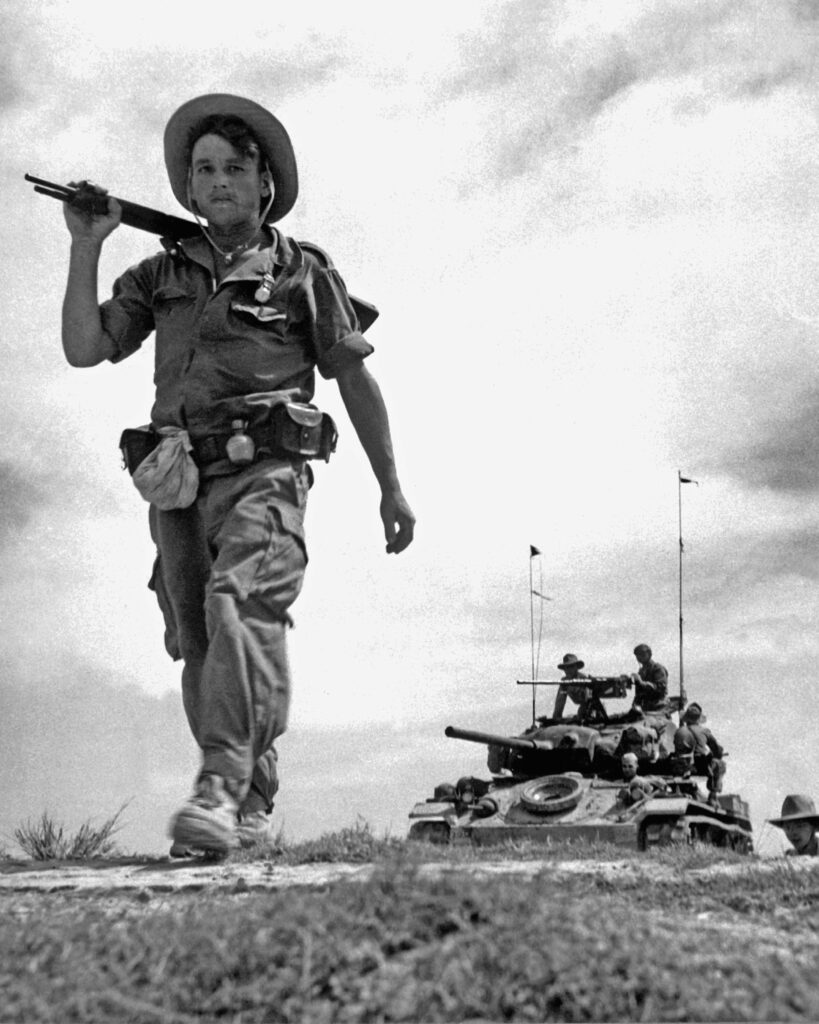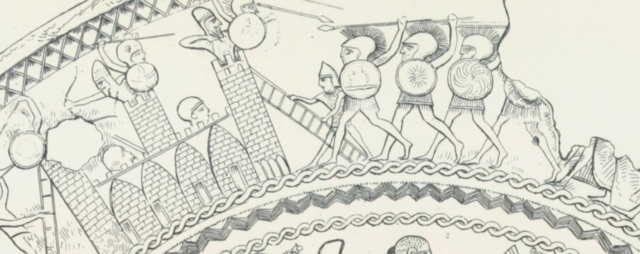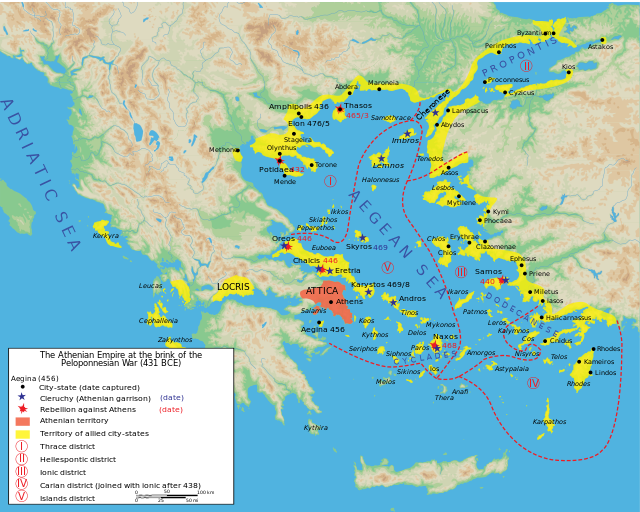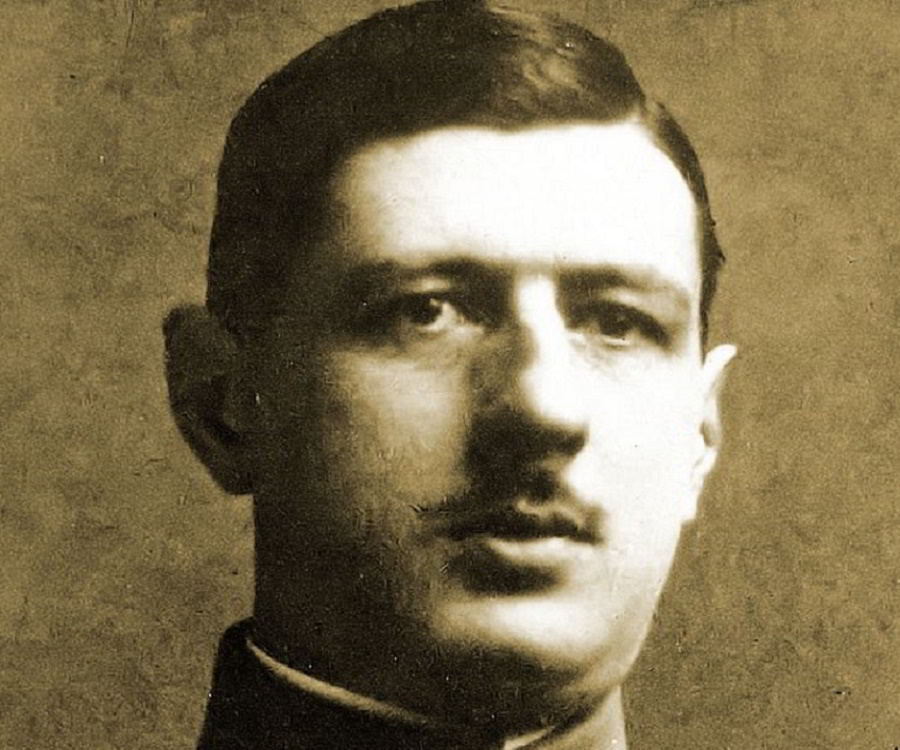For General André Beaufre, indirect strategy is an indispensable complement to nuclear deterrence. In a world locked down by atomic weapons, the only remaining freedom of action lies in indirect strategy.

You can start by reading our article on Nuclear Strategy According to General Beaufre.
Beaufre vs. Liddell Hart: Indirect Approach or Indirect Strategy?
In Strategy, Liddell Hart theorized the indirect approach. His central idea was to overturn the balance of opposing forces before the battle by maneuver rather than combat.
Read our article on Liddell Hart and the Indirect Approach.
However, this approach remains tied to geography and military victory. André Beaufre refines this concept, stripping away its limitations to develop indirect strategy. This strategy seeks decisive outcomes through means other than military victory.
Why an Indirect Strategy?
With nuclear weapons, freedom of action in conflicts diminishes. However, it must still be exploited, as it is the only way to shift the status quo. This requires subtle methods that make war almost unrecognizable.
Conception of Indirect Maneuver
Beaufre’s indirect strategy relies on two types of maneuvers: external and internal.
External Maneuver
In Beaufre’s vision, freedom of action does not depend on operations on the ground but on external factors.
The core of the maneuver unfolds outside the battlefield. The aim is to limit the adversary’s freedom of action on international and domestic stages through political, economic, and diplomatic means. However, this requires credible deterrence (nuclear or conventional) and a coherent political line. Beaufre’s indirect strategy must also target the adversary’s psychology.
Internal Maneuver
Military operations conducted in the geographical space where results are desired are called internal maneuvers. In indirect strategy, these operations are not the main effort, which lies in external maneuvering. They are based on three variables: material forces, moral forces, and duration.
- If material forces are strong, moral forces can be weaker, and the conflict must be short.
- If material forces are weaker, moral forces must be stronger, and the war will last longer. The preferred tactic is maneuver through attrition.
Maneuver Through Attrition
This involves forcing a much stronger adversary to accept unfavorable peace conditions by using limited means against them. The weakness of military forces is compensated by the superiority of moral forces over time.
Material Aspect
For the weaker party, the goal is endurance. The most suitable method is guerrilla warfare. Two key concepts underpin this approach:
- Deterring the population from informing the enemy through systematic terror.
- Expanding the threat geographically to create a protection dilemma for the enemy. The more troops they deploy for protection, the less they can act offensively, thereby weakening them.
The establishment of sanctuaries is also critical. These sanctuaries provide external resources (personnel, arms, supplies) and may be protected by nuclear deterrence if located within the territory of a nuclear-armed ally. However, guerrilla forces may still suffer significant attrition. For instance, in the 1950s, the Malayan insurgency partially failed because the British successfully deprived it of sanctuaries.
Psychological Aspect
Endurance is also key here. A clear and appealing political vision, combined with confidence in ultimate victory (e.g., Marxist emphasis on the inevitability of historical progress), can mobilize popular passions.
In such conflicts, psychological tactics are crucial. “The only successes are psychological,” writes Beaufre. Material victories must lead to psychological triumphs; otherwise, they are pointless.
The synergy between internal and external maneuvers allows conflicts to last, enabling significant gains at minimal costs.
The Artichoke Maneuver (or Salami Tactic)
This tactic involves a military action based on fait accompli, followed by a pause, and then its repetition elsewhere.
The internal maneuver requires a military success within 48 hours, such as the Anschluss or Russia’s annexation of Crimea in 2014. External maneuvering is essential to secure freedom of action. The objective must appear limited to be acceptable to international opinion.
Countering Indirect Strategy According to Beaufre
Countering External Maneuver
External maneuvering is essential for guerrilla operations. The counter-strategy involves adopting an offensive political stance to threaten the vulnerabilities of the adversary and its allies. It also entails multiplying deterrents: maintaining nuclear deterrence, deploying complementary deterrents, and threatening enemy geographical and ideological positions.
On the ideological front, Beaufre noted that during decolonization wars, the West’s weakness lay in its inability to offer the Third World a sufficiently social model. Restoring the prestige of Western civilization was crucial to ensuring its success. Beaufre advocated for a unified Western organization to develop a global strategy.
Read also Beaufre’s Nuclear Strategy.
Countering Internal Maneuver
In key territories, the primary goal is to prevent a fait accompli. Against maneuver through attrition, the stronger party must adopt a political strategy to counter the adversary’s strengths, focusing on prestige and reforms. Militarily, this means countering guerrilla tactics by emphasizing psychological efforts, accepting some insecurity, allowing the adversary to establish a foothold to destroy it, and sealing borders tightly. However, enduring requires significant resources, and internal counter-maneuvers are a direct response to indirect attacks.
*
Indirect strategy complements nuclear deterrence. The key remains freedom of action, which hinges on external maneuvering. Psychology plays a decisive role. However, in the final analysis, force is still indispensable.






